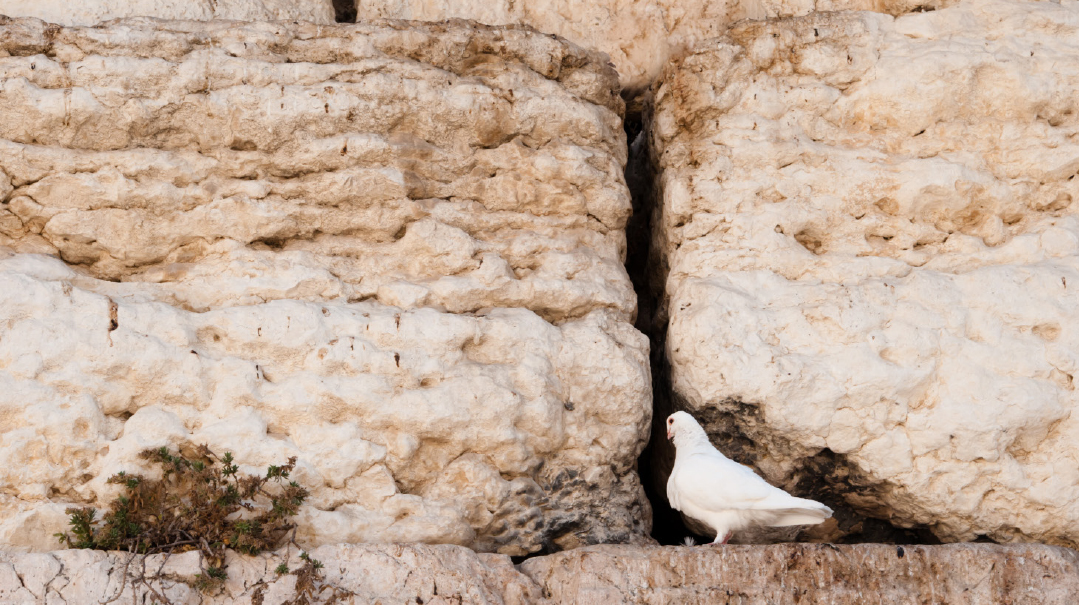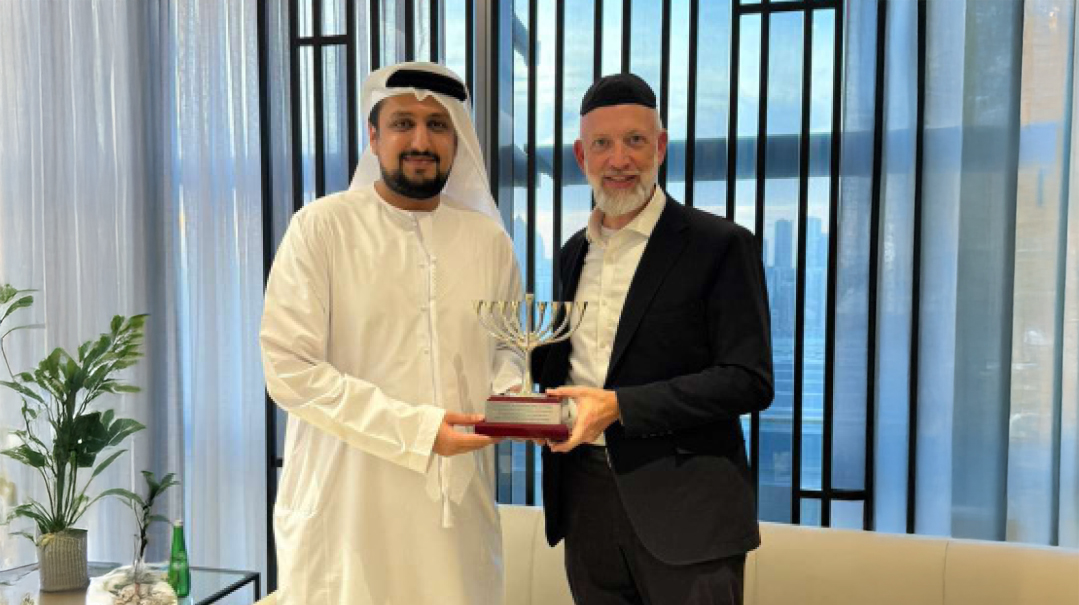Removing the Roadblocks to Teshuvah
| October 8, 2024What exactly do we need to do to achieve “successful” teshuvah?

Last week, we covered three questions to help create a Rosh Hashanah of empowerment, connection, and growth. If Rosh Hashanah is about getting back in touch with our mission in Hashem’s Malchus, Yom Kippur serves to remove the obstacles standing in our way of carrying out that mission as our best and most productive selves.
The problem is, the obstacle-clearing process comes with its own roadblocks. What exactly do we need to do to achieve “successful” teshuvah? What if the thought of all that self-introspection and inner work overwhelms or discourages us?
This week, we’ll deal with three more questions that often come up for all of us who feel confused, ill-equipped, anxious or even “turned off” as we face the work of the Aseres Yemei Teshuvah. This will help us move toward a genuine, fruitful experience of teshuvah and connection.
1. I don’t really want to think about teshuvah — it makes me feel so awful about myself and how far I am from where I need to be. How can I combat this?
The teshuvah process often brings up a lot of “stuff.” When we think about taking an honest look at where we’re holding, negative emotions often emerge to block our way. We might get depressed — I can’t do this, I’m no good. Why am I such a failure? Or feel angry, defiant: Why is this so hard? What do You want from me?
Several thousand years ago, a fellow named Kayin brought a subpar korban. Hashem rejected it, triggering in Kayin that instinctual human response of anger and depression (Bereishis 4:5).
Hashem’s response was piercingly simple. In Targum Onkelos’s words: “Why get angry and depressed? Isn’t it true that if you correct your actions, you’ll be forgiven? And if not, your sin will remain?” (Bereishis 4:6-7)
Kayin, clear your head. Mistakes are… mistakes. They can be fixed. Right now, you have two simple options: Do nothing and keep the sin, or work on correcting your actions. Simple as that.
Kayin’s defensive, emotional-vortex reaction made sense — that’s human nature. But along with our base nature, Hashem gifted us with a higher, more logical way of thinking. One that responds to mistakes and criticism by picking us up and moving us back onto the right track.
Whether it’s overwhelm, fear, despair, or something else holding you back from teshuvah, take a minute to quiet the feelings and remind yourself: “It’s okay. All I need to do is make the choice to put myself back on the right track.”
2. I know intellectually that no matter how many times I’ve fallen in a certain area, I need to keep trying. But I’m still discouraged. What’s the point of trying again this year when I probably won’t accomplish anything?
We’ve fallen into thinking our relationship with Hashem is about bringing Him trophies. What makes Him happy? Our picture-perfect spiritual accomplishments.
But we aren’t right. What does He want most from us?
Us. Ourselves.
Mishlei (2:4): “Im tevakshena chakesef v’chamatmonim tachpesenah, az tavin yiras Hashem.” Most people translate the word im to mean “if”: If we pursued Torah like money, we’d connect to Hashem and His will. But im can also mean “when.” Which would change the pasuk’s meaning to this: “When you’re in the midst of pursuing and searching — that’s when you’ll understand yiras Shamayim and connect.”
We love getting gifts and favors from loved ones. But in healthy relationships, the partners — parents, spouses, children — don’t just want what the other can do for them. They want the person themselves. To be with them. Connected to them. Secure in the fact that they hold an important place in the other’s heart.
When do we give Hashem “us”? When we’re in a state of “bikush,” searching. Mid-struggle. Wrestling with choices and questions. Trying to figure out what He wants from us. Which makes our flaws and struggles themselves an essential piece in our relationship. Without them, we’d be hard-pressed to enter that state of bikush.
“Connecting with Hashem” doesn’t mean being perfect. It means being engaged with Him. Working. Caring. Wanting to be closer.
Trying, falling, and trying again isn’t second-best. It’s everything. It’s exactly what He wants.
3. I know I’m supposed to leave the Aseres Yemei Teshuvah with a small kabbalah I’ll stick to. How can I pick something I’ll maintain the entire year?
Rav Yisrael Salanter taught that we can merit atonement on Yom Kippur simply by taking on one kabbalah ketanah, one small commitment in our growth. He wasn’t trying to make the teshuvah process easier. He was acknowledging that teshuvah takes time.
A beautiful garden can’t grow from bare earth in one day. Gardeners wait months between planting their seeds and enjoying the fruits of their labor.
The Yemei Ratzon are like the first days of a gardening project. We need to approach them with the same patience. First, we need to cast a vision for our “garden.” We started doing that on Rosh Hashanah when we shared with Hashem what we’d like to accomplish in the coming year.
So, what’s the one “project” we want to dedicate our year to? What’s pulling at us? Emunah? Tefillah? A relationship? A specific person or population we’d like to help? A specific middah we need to strengthen?
Then it’s time to pick a “seed” kabbalah — a small, doable commitment capable of triggering further growth as the year goes on. We’re not looking to maintain a specific action the entire year. We’re looking for an entry point that will naturally lead to overall growth in the area of our choice.
An example: You decide to work on connecting better to tefillah. One idea for a “seed” kabbalah might be focusing on the word Atah in the first brachah in Shemoneh Esreh each day. For a few seconds, thinking thoughts like, I’m actually standing in front of Hashem. He’s here, listening to me intently.
These thoughts alone help you experience the reality you know is there a tiny bit more than before. Which, over time, will sharpen your appreciation for the gift of tefillah. Which will drive you to daven more, work harder on kavanah, learn more about the words — all because you actually want to.
WE might not have full confidence in ourselves, but Hashem has full confidence in us. We might feel distant, but He’s right there, just one step away. Let’s use the shifts in mindset and tools above to help us take that step and reconnect. To Hashem, and to the critical role we play in the mission of Hashem’s Malchus.ᐧ
Rabbi Levi Lebovits is the director of the Vaad Project, an initiative to help Jews worldwide find joy, meaning, and fulfillment in their Judaism. He has studied for over 20 years under Rav Reuven Leuchter, and has authored step-by-step guides on teshuvah and the Haggadah.
(Originally featured in Mishpacha, Issue 1032)
Oops! We could not locate your form.







